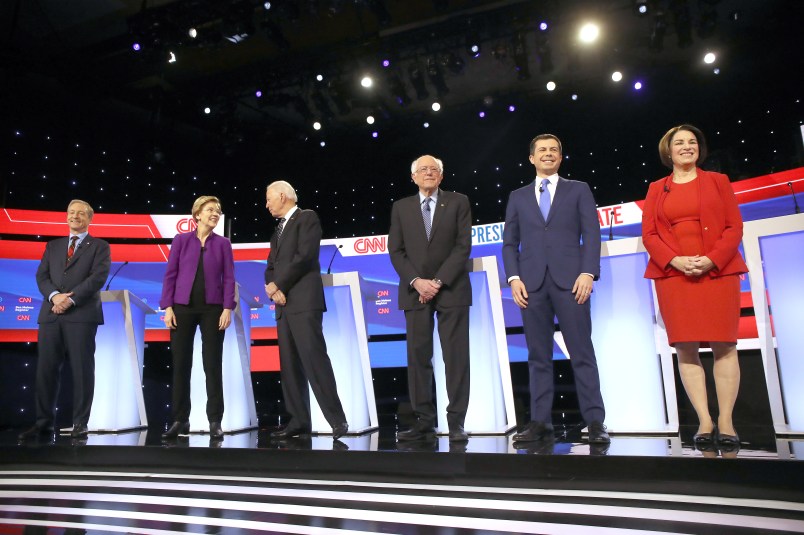Our Iowa caucus liveblog continues. The first-in-the-nation Iowa caucuses, a much-anticipated electoral kick-off to the 2020 Democratic presidential primary, have turned out to be a fiasco. Reporting issues mean the results were, and continue to be, considerably delayed.
The initial results started to trickle in Tuesday evening, setting the tone for the primary as the candidates campaign across the country for the party’s nomination. Follow along below.
What To Expect
- With 62 percent of precincts reporting, Buttigieg is leading the pack in Iowa with 26.9 percent of the state delegate equivalents. Full results of the caucuses are still unknown due to technical issues with an app the Iowa Democratic Party used this year to record caucus totals, and reporting issues with systems meant to back up the app.
- Caucus voting is not like regular voting: Rather than filling out secret ballots, caucus-goers announce their preferences in public, in front of their neighbors, at more than 1,600 caucusing sites across the state (and a few outside of Iowa).
- Only candidates who in the first round of voting have received the support of 15% of caucus-goers at a given location are eligible to receive delegates at that location. In a second round of voting, supporters of those candidates who received less than 15% support can cast their vote for a more popular candidate. After that second tally, delegates are apportioned.
- The rules, already complicated in years past, are slightly different this year.
- Caucuses began Monday at 7 p.m. Iowa time, or 8 p.m. ET. Results were expected between 8:30 and 11 p.m. ET. By midnight, it was clear something was wrong this year.
- Ultimately, Iowa only sends 41 delegates to the Democratic National Convention, but the momentum from a successful caucus day is crucial to presidential contenders.
Our Iowa caucus liveblog continues. The first-in-the-nation Iowa caucuses, a much-anticipated electoral kick-off to the 2020 Democratic presidential primary, have turned out to be a fiasco. Reporting issues mean the results were, and continue to be, considerably delayed.
The initial results started to trickle in Tuesday evening, setting the tone for the primary as the candidates campaign across the country for the party’s nomination. Follow along below.

